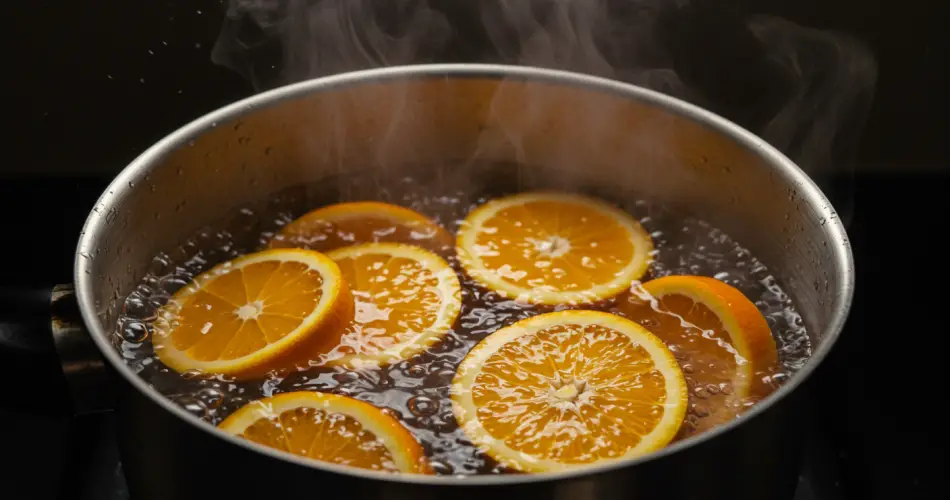Maintaining a fresh-smelling kitchen can be a challenge, especially during cold weather when opening windows is less appealing. Cooking naturally produces odors that can linger in the air, particularly in smaller spaces or kitchens with poor ventilation. Grease, food residue, and trapped steam can create unpleasant smells that make the kitchen less inviting. Fortunately, there are natural and effective ways to eliminate these odors and infuse your kitchen with delightful aromas, even when the weather outside is chilly.
Why Kitchen Hygiene Matters
The first step in controlling odors is maintaining a clean and organized kitchen. Regularly wiping down surfaces, cleaning appliances, and ensuring areas around the stove, oven, and countertops are free from grease and food particles are essential habits. Not only does this prevent bad smells, but it also reduces the risk of bacteria and mold growth.
Ventilation is another key factor. If possible, opening windows or using an extractor hood can help disperse cooking odors. However, during colder months, keeping windows closed is often necessary, so alternative methods to freshen the air become essential.
Natural Ingredients for a Fresh Kitchen
Many traditional remedies use natural ingredients that are readily available in most homes. These ingredients not only neutralize odors but also leave the kitchen smelling pleasant and inviting. Some of the most effective options include citrus fruits, bay leaves, lavender, and vinegar.
Citrus Fruits
Citrus fruits, such as lemons, oranges, and limes, are ideal for freshening the kitchen because of their strong, natural aroma. Even when windows are closed, citrus can brighten and refresh the air.
To use citrus for odor control, start by cutting a lemon or an orange in half. Squeeze the juice into a small pot of water, then slice the remaining halves and add them to the pot. Heat the mixture on the stove until it comes to a gentle boil, then reduce the heat and allow it to simmer. The natural oils released from the fruit will fill your kitchen with a refreshing scent. Once the aroma spreads, you can turn off the stove and let the fragrance linger.
Bay Leaves
Bay leaves are another natural solution for kitchen odors. Their scent is strong yet subtle, making them ideal for continuous use without being overpowering.
To maximize their effect, prepare a simple bay leaf infusion. Combine a few bay leaves with water in a small pot and simmer gently for 10–15 minutes. To boost odor absorption, you can add a teaspoon of baking soda to the mixture. The baking soda neutralizes bad smells while the bay leaves release a pleasant, herbaceous aroma.
Lavender
Lavender is widely known for its calming fragrance and is often used in laundry products. However, it is equally effective as a natural kitchen freshener. You can prepare a lavender infusion similar to the bay leaf method or even create a homemade scented candle.
For a candle, fill a small glass jar with water and add fresh or dried lavender flowers. Place a small tea light candle on top. As the candle warms the water and lavender, a gentle, relaxing aroma will spread throughout your kitchen. This method works well when windows and doors are closed, allowing the scent to circulate naturally.
Using the Oven to Diffuse Aromas
Another effective trick for freshening your kitchen is using the oven itself. This method is particularly useful when it’s too cold to open windows.
Preheat your oven to around 180°C (356°F). Line a baking tray with parchment paper and place slices of citrus fruit, such as oranges or lemons, on it. Bake the fruit for about 15 minutes. The heat will release essential oils from the citrus, filling your kitchen with a naturally sweet and refreshing scent. Once the aroma has permeated the space, turn off the oven and enjoy the lingering fragrance.
This method can be combined with bay leaves or other aromatic herbs for a more complex scent profile. Simply add a few bay leaves or sprigs of rosemary alongside the citrus slices to enhance the fragrance.
Preventing Kitchen Odors
While eliminating odors after cooking is effective, prevention is often better than cure. One simple approach is to place a small pot of boiling vinegar on the stove while cooking. The vapor from the vinegar neutralizes odors as they are produced, reducing their spread throughout your home. Using this method alongside an extractor hood or kitchen fan maximizes its effectiveness.
Other preventative measures include:
-
Regularly taking out trash and cleaning the bin.
-
Promptly washing dishes and utensils to avoid lingering food smells.
-
Using reusable cloths or sponges and washing them frequently to prevent bacterial buildup.
-
Storing foods in airtight containers to prevent odors from escaping.
Combining Methods for Maximum Effect
For the best results, combine multiple natural remedies. For example, simmering citrus and bay leaves together while burning a lavender candle creates a multi-layered aroma that both neutralizes unpleasant smells and provides a pleasant, welcoming atmosphere. These methods are safe, chemical-free, and suitable for households with children or pets.
Conclusion
A fresh and inviting kitchen is achievable even in cold weather, without relying on artificial air fresheners or chemical sprays. By incorporating natural ingredients like citrus, bay leaves, lavender, and vinegar, you can eliminate odors effectively while filling your home with delightful scents.
Whether you prefer a simmering pot of citrus and herbs, a lavender candle, or a simple oven-based method, these strategies make it easy to maintain a pleasant kitchen environment. Combine them with regular cleaning and proper ventilation to keep your kitchen smelling fresh all year round, no matter the season.
With these natural solutions, your kitchen can be a space that smells as good as it looks—warm, inviting, and free from lingering cooking odors.



